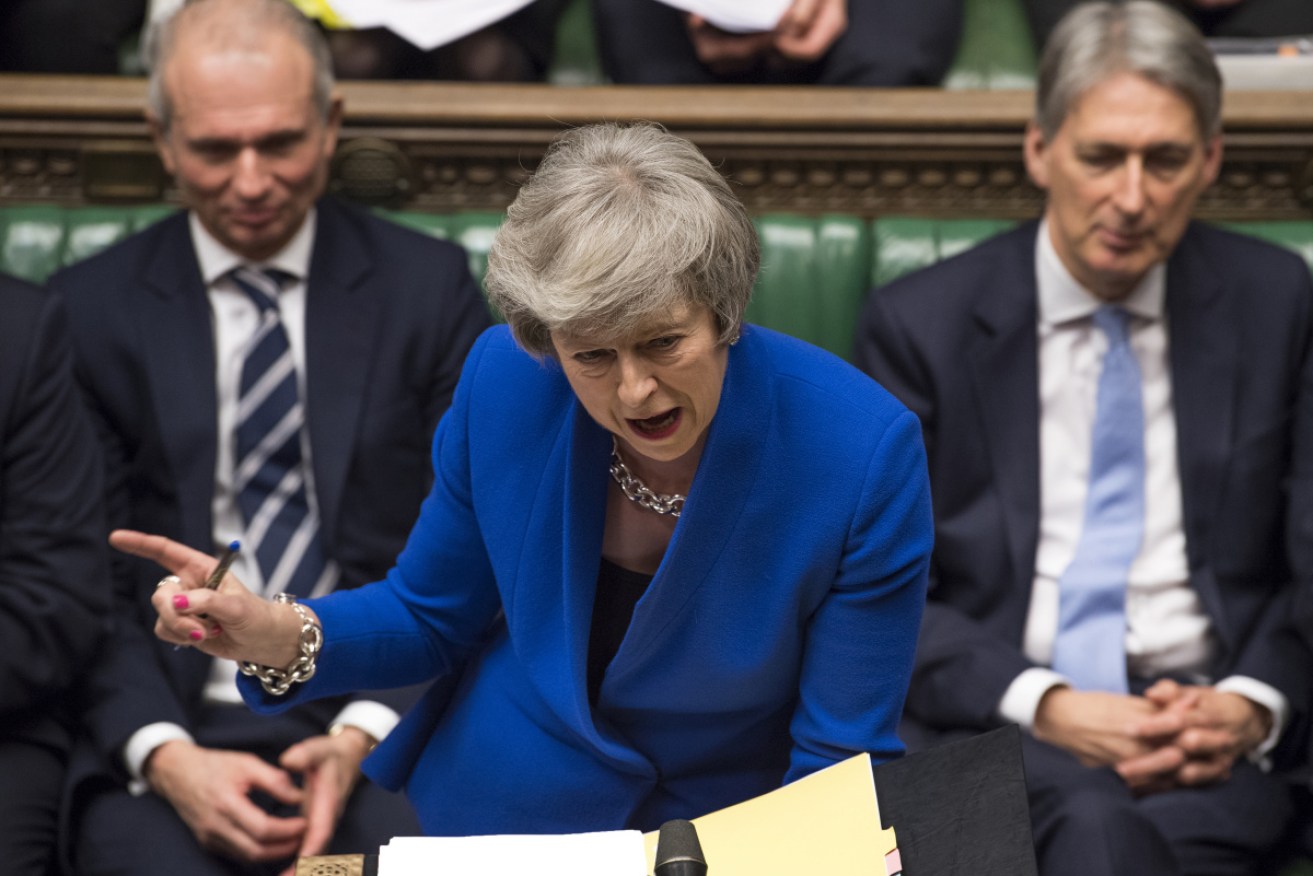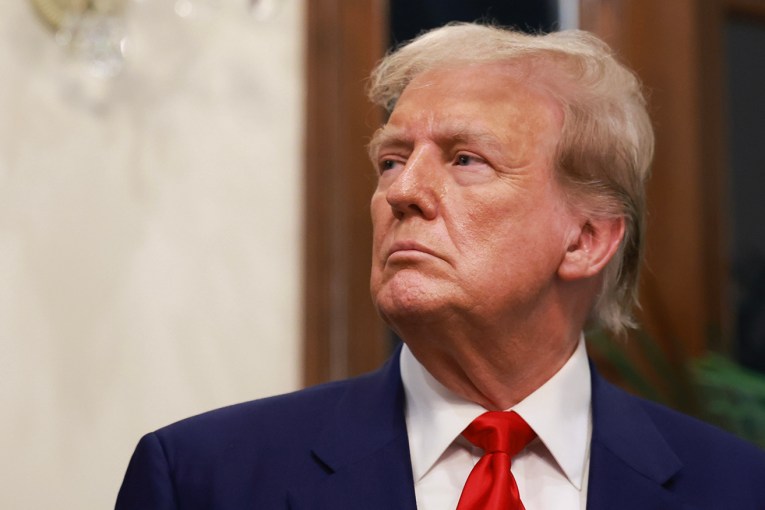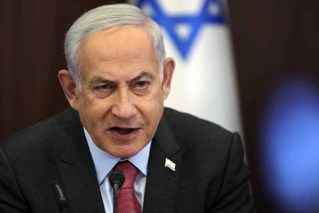Theresa May’s UK government narrowly survives no-confidence motion


The UK PM faces down mounting pressure for a change of government. Photo: AP
Theresa May’s minority Conservative government has clung to power after narrowly winning a vote of no-confidence in UK Parliament on Thursday morning.
British MPs rejected the Opposition’s bid to challenge Ms May’s power 325 to 306 in a vote not only on the future of the UK government, but its fraught departure from the European Union.
Ms May must now face the monumental task of formulating a plan B Brexit deal after her first-choice legislation was decisively defeated on Wednesday.
Speaking outside No 10 Downing St in an unscheduled media conference later Thursday, Ms May has issued a blunt warning to her political rivals and MPs from her own party.
“This is now the time to put self-interest aside. Time to put self-interest aside and deliver on the referendum,” she said.
“I believe it’s my duty to get on with the people’s instruction and leave the EU… I’m inviting MPs from all parties to come together and find a way forward.”
Ms May said she’d already met with representatives from the Liberal Democrats, the SMP and Plaid Cymru, but was disappointing Labour had not taken up her offer.
“But out door remains open,” she said.
Labour leader Jeremy Corbyn tabled the motion of no-confidence in the government after Ms May’s Brexit legislation was dealt the biggest parliamentary defeat in modern British history on Wednesday.
The motion was backed by MPs from the SNP, Liberal Democrats, Plaid Cymru and Green Party.
After the vote, Ms May told MPs she would “continue to work to deliver on the solemn promise to the people of this country to deliver on the result of the referendum and leave the European Union”.
She invited leaders of all parties to have individual meetings with her on the way ahead for Brexit, starting immediately, but called on them to approach them with a “constructive spirit”.
“We must find solutions that are negotiable and command sufficient support in this House,” the Prime Minister said.
Mr Corbyn said that before any discussions could take place, tMs May should rule out a no-deal Brexit.
“The government must remove clearly, once and for all the prospect of the catastrophe of a no deal exit from the EU and all the chaos that would come as a result of that,” he said.
Mrs May will return Parliament on Monday to give MPs another vote on her revised Brexit plan.
Ahead of Thursday’s vote, Mr Corbyn called Ms May’s administration a “zombie government” that “cannot govern” in debates ahead of the vote, repeating his call for a general election.
Ms May needed 318 votes to win the vote, as seven members of the Irish nationalist Sinn Fein party do not sit, four speakers do not vote and four politicians who help count votes, known as tellers, are not counted.
Ms May had the backing of Tory rebels and Northern Ireland’s 10 DUP MPs, who all helped inflict the humiliating Brexit deal defeat.
Brexit chaos
The prospect of a disorderly, no-deal exit from the EU on March 29 became a distinct possibility after MPs voted down Ms May’s Brexit proposal 432 to 202 on Wednesday morning – the heaviest parliamentary defeat for a government in recent British history.
More than 100 of Ms May’s own Conservative lawmakers – both Brexiteers and supporters of EU membership – joined forces to vote down the deal.
The humiliating loss, the first British parliamentary defeat of a treaty since 1864, marked the collapse of her two-year strategy of forging an amicable divorce with close ties to the EU after the exit.
Government still in doubt
Labour has indicated it will continue to table further no-confidence motions in Ms May’s government.
If the government eventually loses a no-confidence motion, it would trigger a 14-day period in which any party, including Ms May’s Conservatives, can seek to form a government.
To do this they would have to win a confidence vote in the House of Commons.
If a new government cannot be formed within 14 days, a general election is triggered.
A general election would “deepen divisions when we need unity, it would bring chaos when we need certainty,” Ms May said.
The Brexit fiasco has triggered the deepest political crisis in 50 years and could even lead to a reversal of the 2016 decision to leave.
Donald Tusk, chairman of EU leaders, took to Twitter to suggest Britain should now consider reversing Brexit.
-with agencies








